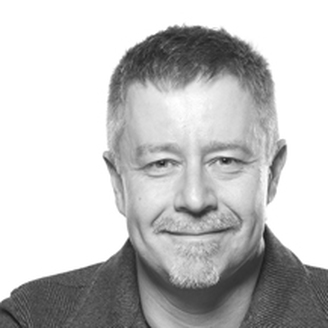
IDEO, as you may know, is one of the world's leading creative consultancies: beginning with their founder David Kelley, they have been willing to show how they build their design thinking methodologies: the careful defining of problems and targeting their solutions. And fittingly enough, Brown says innovation requires a certain passionate curiosity -- to move from problem to solution.
In this Working Differently blog, we have described this type of design thinking methodology or process as it applies to large community systems. The best "executive summary" would be in the blog posting: "Seven Habits of Highly Successful Communities."
1. Curiosity
"Any organization that wants to innovate, wants to be prepared to innovate, I think, has to have a few things in place," IDEO CEO Tim Brown tells the Yale School of Management. "Perhaps the most important thing is methods for having an open mind." Click here to view the video "The quickest way for removing curiosity in my opinion is to have organizations that are too inward-facing, that don't spend enough time out in the world."
Why is this case? Because, as Tina Seelig, Stanford Business Professor, has noted, the basis of creativity is keenly observing the world: you need to understand, the way Twitter does, how users and other shareholders get value from what you do. If you're always facing inward, you'll miss out.
2. Empathy
"A sense of empathy for the world, for people whose problems they might be trying to solve--that's essential," Brown says, echoing Ginny Whitelaw's advice that empathy is the most powerful leadership tool.
"WE COME WITH WHAT WE MIGHT CALL A BEGINNER'S MIND, "Brown says he has a lot of empathy for their clients, since IDEO needs to keep innovating for itself. His job--and we can assume that of other executives--is to "do some pattern recognition" across all the people storming their brains and ideating on their iterations. They key, then, is to find the places to focus more of their resources.
3. Celebrate the Non-Experts
"We come with what we might call a beginner's mind," Brown says, borrowing a phrase from a Zen Master. This is a central "Habit #4" we have identified early on -- one way we've framed it is: make sure you also engage those in the community who don't make their living at what you are trying to solve.
While Brown notes that over the years IDEO has built knowledge in fields like healthcare and financial services, they still mostly approach problems unencumbered by expertise. They're wizened in their methodology, but fresh-faced with each new circumstance.
Our Working Differently communities can embrace the process while at the same time being "naive" enough to see the connections which will make up the solution.
"We do rely somewhat on the value of having an open mind when we approach a new question," Brown says. "I think that's perhaps the reason that we succeed in working across a lot of different industries." Or across a range of community issues from poverty reduction to education to health.
 RSS Feed
RSS Feed
